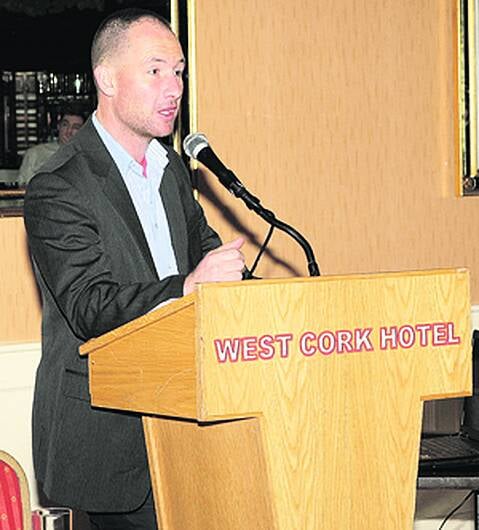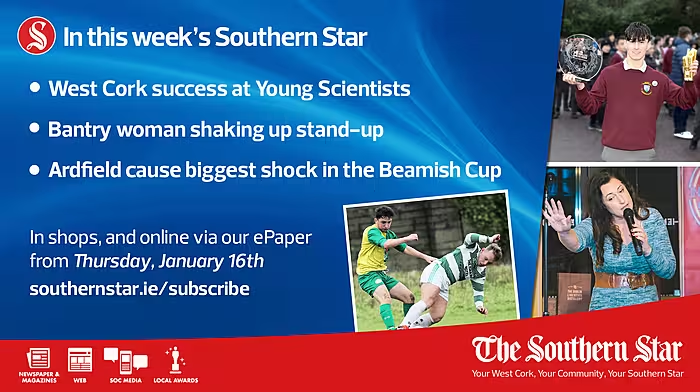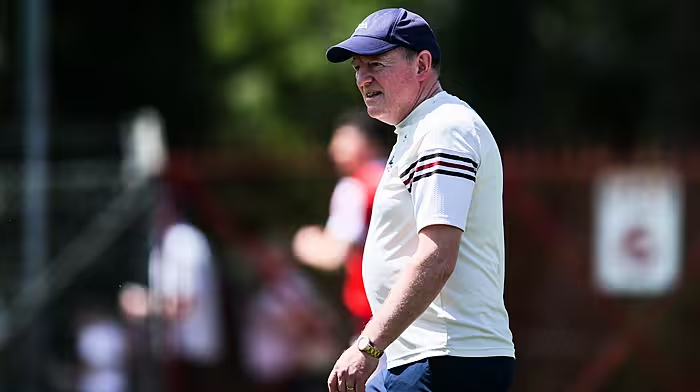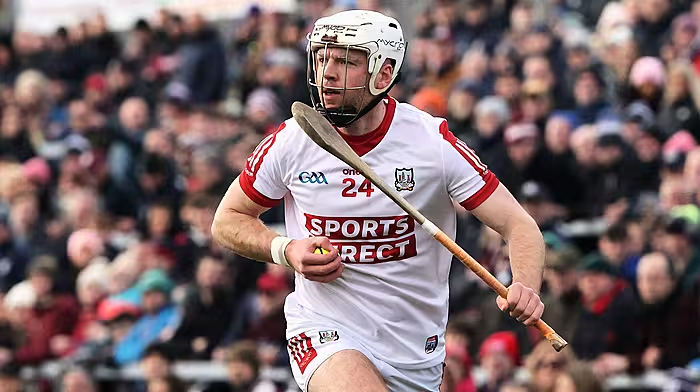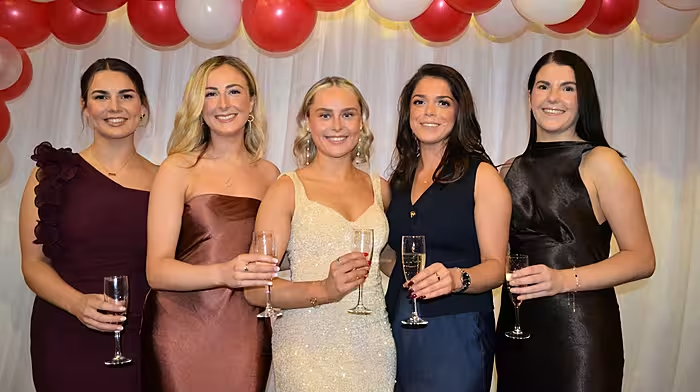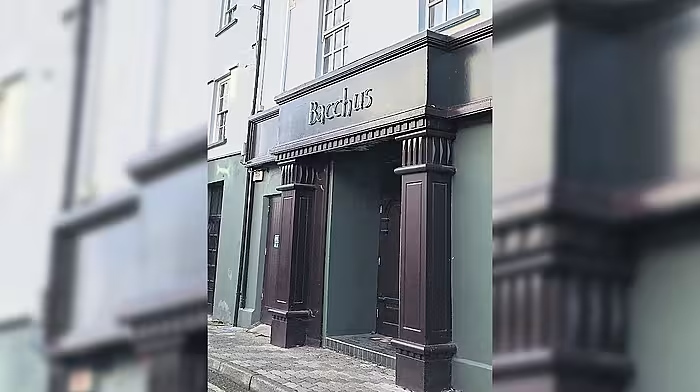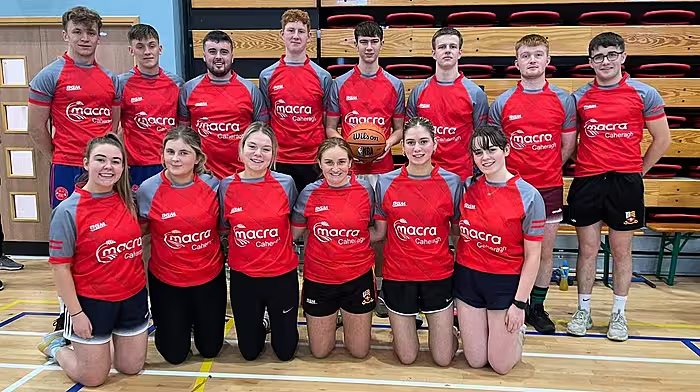Cork County Board vice-chairman Kevin O'Donovan gave his thoughts to TOM LYONS
Cork County Board vice-chairman Kevin O’Donovan gave his thoughts to TOM LYONS
KEVIN O’Donovan, the new vice-chairman of the Cork County Board, is no stranger to change, innovation and some controversy.
In his three-year term as coaching officer he introduced many changes in coaching in the county, especially with the development squads and Rebel Óg, but was never afraid to face a challenge, even if it meant differing from his fellow-officers on the board at times.
O’Donovan has always been his own man, going right back to his days as a player and then as an officer with his own club, Kilmeen-Kilbree. But now, as vice-chairman of the county board, can we expect to see a more subdued party-man than the budding Rebel we have come to admire?
His reputation as an instrument of change, in an association that is often so slow to introduce change, was cemented when he introduced a 21-point plan for the advancement of the GAA in Cork. That plan not only prompted a lot of debate within the county but antagonised a lot of GAA people who could be classed as conservative. It also pre-empted the strategic plan produced by the board last month.
In his campaign to become vice-chairman of the board, in succession to new chairperson Tracey Kennedy, O’Donovan said he was approached by people who thought he was not radical enough in his changes, and also people who thought he was far too radical.
So, as vice-chairman, which places him in the very influential position of chairman of the CCC (Central Control Committee), will O’Donovan fulfil the dreams of those who long for radical change within the county, will he be constrained by the conservatives or will he seek to reach a happy medium that will satisfy most of the GAA supporters in the county?
In his acceptance address to county convention O’Donovan mentioned a number of areas in which he would like to see change. Our correspondent, Tom Lyons, questioned him on those areas.
Tom Lyons (TL): In your address to convention you mentioned that there are massive challenges facing the GAA in the county. How will you be able to affect change in those areas in your new position as vice-chairman?
Kevin O’Donovan (KOD): I would hope that in my new position as chairman of the CCC that I will have much more of an input into the decision-making in the board. There’s only so much one can do when outside looking in. My top priority is the fixtures programme and I will be directly responsible for that now so that is a huge area in which to introduce beneficial changes.
TL: The first challenge you mentioned was the big clubs trying to find enough teams to suit their players and at the same time the small clubs trying to find enough players to fill teams. How can you solve those two contrasting problems at the same time?
KOD: If you asked me what is number one on my agenda for the coming year it is participation. I am all for amalgamations when they work but the 12- or 13-a-side teams in small clubs are being forced out of existence because they have no opposition. We need a new system of fixtures for them running parallel to our ordinary programme of games.
As regards the big clubs we need to glamorise and prioritise our junior C and junior D competitions to give players games. Big clubs can field four U16 teams but where do they go when they are at adult level? What competitions do we provide for them? I also fully believe that if the minor age was reduced to U17 at club level, it would solve a lot of our over-lapping problems, which is a huge problem in all clubs.
TL: You mentioned the huge financial challenge facing all counties at present. Cork owe €23 million on Pairc Uí Chaoimh, had a deficit of €340,000 in 2017 and yet spent a colossal €1.7 million on its intercounty teams. Have we got our priorities all wrong in Cork?
KOD: People say we need to cut our costs, etc., but I would look at it from a different view-point. I think we need to maximise our income from all sources, especially sponsorship and a Cork Supporters’ Club. It’s very difficult to see where you can make cuts here in Cork because of the size of the county, travelling expenses, etc., so we need to bring in enough finance to cover everything. If a county like Cork can’t manage its finances and make ends meet, what hope have all other counties, bar Dublin?
TL: You highlighted fixtures as a big problem facing the board. As chairman of the CCC you will have a prime role in sorting that problem. Have you any ideas how to improve the situation for club players?
KOD: I always thought coaching was the answer to most problems in the GAA but I realise now that it is fixture-making. We need to get that area right, especially now as we face so many changes at inter-county level. One answer is for clubs to play fixtures as they come up. The good clubs who always finish their programme of games make a point of fulfilling fixtures as they appear. Some clubs refuse to play without their star players and postponements cause all kinds of knock-on problems.
Tied in with fixtures is the refereeing problem. If we want to provide more games and more participation, where do we get referees? Right now the referee situation is too disjointed, with too many boards calling on the same referees. We must have joined-up thinking here, get a single structure within the county for all our referees, a joint programme for all boards to make maximum use of our referees. It needs to be done urgently.
TL: What did you mean when you said there is a problem with elitism in the GAA?
KOD: Right now we have a situation where our inter-county players are seldom seen at club level and that is creating elitism within the association. Much of our sponsorship is directed at those players instead of at competitions and clubs.
We are heading for a situation like the rugby where our top players will be contracted to play with the county and I would disagree totally with that approach.
Maybe some system like the World Cup in soccer and rugby could be looked at, where the inter-county is run off as a special shorter competition. Unfortunately, many club players have now accepted playing games without our star players and that is not good for the association. We certainly don’t need elitism in the GAA.
TL: The growing pressure on volunteers in the association and the dwindling number of people available as volunteers is worrying. What can be done to alleviate that growing problem?
KOD: Again I think the whole problem comes back to our chaotic fixture lists. If people knew exactly when games were taking place, when they would be involved, when they would have time off for holidays and so on, then we might see a lot more volunteers at club level. It’s all far too uncertain now. I was also against limiting the time for officers to three or five years but I have since changed my mind. We need to get new blood in, to encourage new officers, to give people a chance to get to the top and the fixed term does that.
There is no doubt that Kevin O’Donovan is a breath of fresh air in the GAA in Cork, as is the new chairperson Tracey Kennedy and the other young officers who have come on board.
We understand that he won’t shake mountains straight away in his new appointment but we will be expecting a few small earth tremors over the coming three years, all to improve the GAA in the county.
The young radical will need time to grow into the elder statesman and we finish with his own words at county convention. O’Donovan stated, ‘The winds of change are always there. The board has faced these challenges before. Men like the recently deceased Derry Gowen, men like Frank Murphy have always been at the forefront of driving change through the GAA. My own view is that we must adjust our sails again. The winds are there, we can still reach our destination and we can do it together.’

